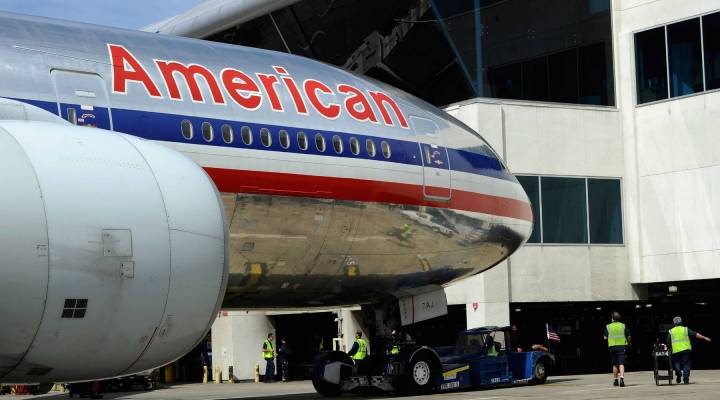
How consumers hold businesses accountable

Recently, the NAACP warned African American travelers about flying American Airlines, saying they had seen racial bias by the company’s employees. The airline joins Papa John’s, Uber, United Airlines and Chick-fil-a in the ever-expanding list of businesses that have been boycotted or criticized by consumers.
Sometimes it’s about company policy. Sometimes about something the boss or an employee did. Other times a boycott can be traced to company spending or investments.
Nowadays, a viral Twitter complaint or a hashtag campaign can spiral quickly. Companies scramble to issue a public apology, change policy or attempt to ride out negative publicity.
Brayden King studies boycotts and is a professor at the Kellogg School of Management at Northwestern. He spoke with Marketplace Weekend and explained how boycotts and consumer attention affect business. Here are his key takeaways:
Boycotts are bad for business…even if they don’t hurt the bottom line.
King says that most of the time, consumer criticism and boycotts aren’t actually having a major impact on earnings for major companies. Customers who protest vocally or say they’re boycotting a company don’t always follow through — they often don’t stop spending for significant amounts of time, and even when they do, large enough companies won’t necessarily feel the boycott, financially. What does hurt? The business’ future reputation. Most actions from businesses are prompted by the fear that they will continue to be associated with negative publicity.
Twenty-five percent of boycotts and consumer protests result in some action from a company.
King’s 2011 research shows that about a quarter of boycotts or related protests result in some sort of public apology, change or other action from the business being critiqued. That’s a pretty good response, considering how low the threshold is for participation. King says the best and most effective responses are those that somehow change the company’s involvement with the community doing the protesting. King uses the example of a Toyota, which in 2001 pulled an advertisement that many felt was racist after Rev. Jesse Jackson threatened to boycott the company. Toyota apologized, and soon after, announced a $7.8 billion, 10-year diversity program to expand the number of minority-owned Toyota dealerships and employees.
Social media totally changed the game, financially.
It used to be that a successful boycott required the publicity and backing of a group or institution. Advertisements needed purchasing, protests needed funding and people couldn’t do that on their own. These days, a viral tweet, a hashtag campaign or a Facebook group can get the attention of national media quickly and effectively, meaning consumers spend far fewer resources on protests, activism and boycotts, and things happen at a much faster pace.
Consumer criticism is the intersection of the free market and free speech.
Sure, it’s effective, but is it the consumer’s place to regulate business? King says yes — protest and counter-protest is part of what drives competition in the free market. Consumers are free to critique and boycott, those who disagree are free to do the same and businesses can respond however they see fit.
There’s a lot happening in the world. Through it all, Marketplace is here for you.
You rely on Marketplace to break down the world’s events and tell you how it affects you in a fact-based, approachable way. We rely on your financial support to keep making that possible.
Your donation today powers the independent journalism that you rely on. For just $5/month, you can help sustain Marketplace so we can keep reporting on the things that matter to you.












